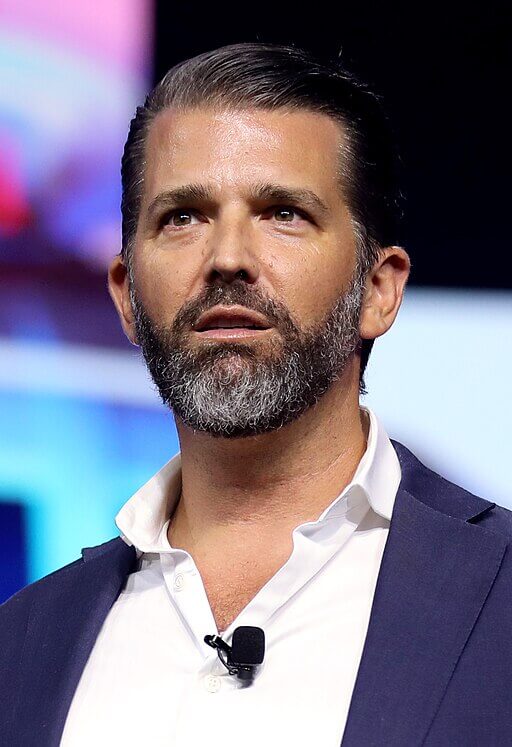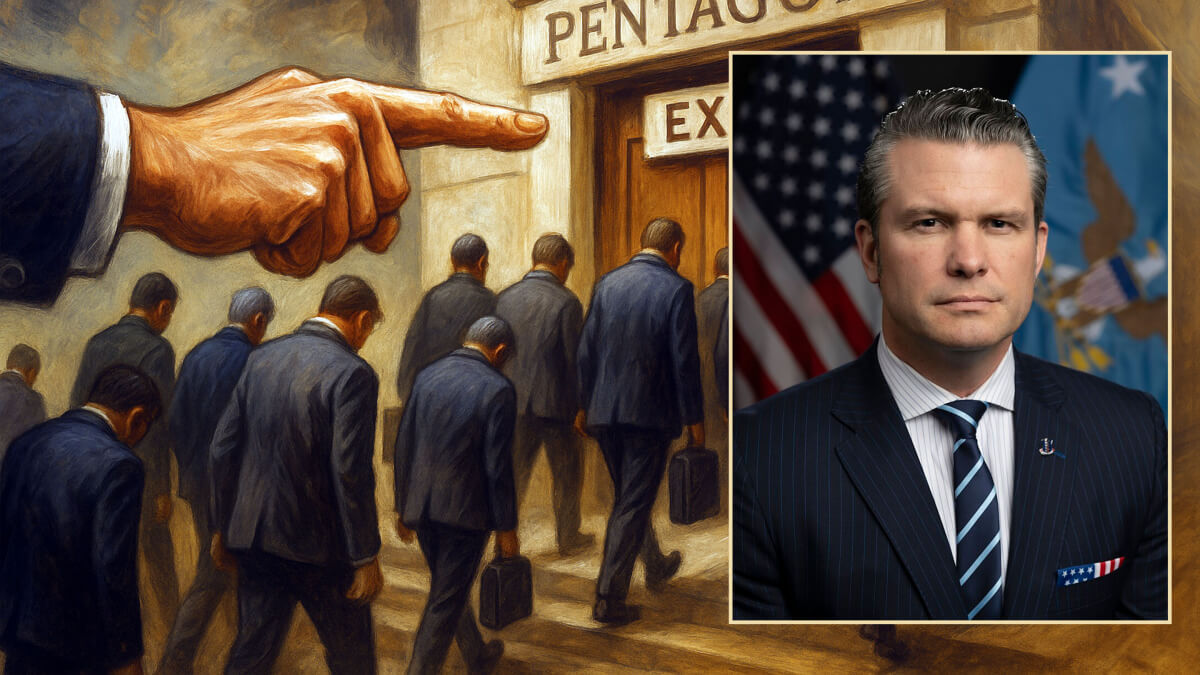
The Defense Department has become the epicenter of a significant internal conflict following a series of high-profile dismissals and allegations concerning classified information leaks. What began as a staffing shakeup has quickly escalated into a public confrontation between Trump administration officials and their former colleagues, revealing deeper tensions within the Pentagon's leadership structure.
"Signalgate" Erupts
On April 21, 2025, Donald Trump Jr. took a direct approach to the controversy by publicly denouncing Jeff Ullyot, a recently departed Defense Department official, on social media platform X. "This guy is not America First. I've been hearing for years that he works his ass off to subvert my father's agenda. That ends today. He's officially exiled from our movement," Trump Jr. wrote, bringing national attention to what insiders are now calling "Signalgate."
The controversy centers around actions taken by Pete Hegseth, a senior Pentagon official appointed by President Trump. Hegseth recently dismissed several top aides, including his former chief of staff Joe Kasper and advisor Dan Caldwell, citing "unauthorized disclosures" of classified information to media outlets as the reason. Additionally, Deputy Chief of Staff Darin Selnick was suspended and removed from Pentagon premises pending further investigation.
These dismissals appear to be connected to concerns about sensitive information being shared through unauthorized channels. While specifics about the leaked information remain classified, sources familiar with the matter indicate the disclosures potentially compromised operational security protocols.
"This guy is not America First. I’ve been hearing for years that he works his ass off to subvert my father’s agenda. That ends today. He’s officially exiled from our movement." - Donald Trump Jr.
Competing Narratives
Following his departure, Ullyot took an unprecedented step by publishing an opinion piece in Politico challenging the official account of events. In his op-ed, Ullyot characterized the firings as a smokescreen designed to hide what he described as "disarray" within the Defense Department's leadership team.
Ullyot's allegations were pointed and specific. He accused Hegseth's team of spreading "flat-out, easily debunked falsehoods" about colleagues who were departing the administration. He also raised questions about investigative procedures, noting that despite initial announcements that lie detector tests would be administered as part of the leak investigation, no such tests had been conducted.
The Pentagon has maintained its position that the personnel changes were necessary security measures in response to verified breaches of protocol. A Defense Department spokesperson, speaking on condition of anonymity due to the sensitive nature of the situation, stated that all actions taken were in accordance with established security procedures and that the investigation remains ongoing.
Policy Implications
Beyond the personnel drama, the controversy touches on substantive policy directions at the Defense Department. In his op-ed, Ullyot acknowledged some positive developments under the current leadership, including the elimination of what many conservatives considered "woke" initiatives and addressing concerns about lowered physical fitness standards in the military.
However, these areas of agreement appear overshadowed by disagreements about implementation approaches and communication strategies. The dispute comes as the Pentagon prepares for a sensitive briefing with entrepreneur Elon Musk regarding potential military responses to hypothetical foreign threats, indicating that despite internal tensions, strategic planning continues.
Military analysts note that while personnel changes at the Pentagon are not uncommon during transitions between administrations, the public nature of these dismissals and subsequent allegations is unusual. The involvement of the President's son in publicly criticizing a former official further distinguishes this situation from typical governmental restructuring.
Broader Context
As the administration approaches its first 100 days in office, the Pentagon controversy threatens to complicate the narrative of a smooth implementation of the America First agenda in defense policy. The incident highlights the challenges faced by the administration in ensuring loyalty and policy alignment throughout the government's largest department.
The Pentagon, with its massive budget and extensive bureaucracy, has historically presented challenges for new administrations seeking to implement significant policy changes. Veterans of previous administrations have noted that resistance to new directives can come from career officials as well as political appointees whose vision may not perfectly align with that of the President.
For the Trump administration, which has made military readiness and a strong national defense central components of its platform, ensuring cohesion within the Pentagon leadership remains a critical objective. The current controversy indicates that achieving this goal may require addressing both security concerns and communication breakdowns within the department's senior ranks.
Path Forward
While the immediate focus remains on investigating the alleged leaks and stabilizing the department's leadership structure, longer-term questions about Pentagon governance remain. How the administration balances security concerns with the need for diverse perspectives in defense planning will likely shape its approach to military policy in the months ahead.
The Defense Department has not announced replacements for the dismissed officials, though sources suggest that the administration is actively vetting candidates who combine relevant experience with commitment to the President's defense priorities.
As this situation continues to develop, observers across the political spectrum are watching closely to see whether this internal conflict represents a temporary disruption or signals a more fundamental realignment within one of the government's most crucial departments. What remains clear is that as global security challenges persist, the Pentagon's ability to function effectively amid internal tensions will be closely scrutinized both domestically and internationally.






